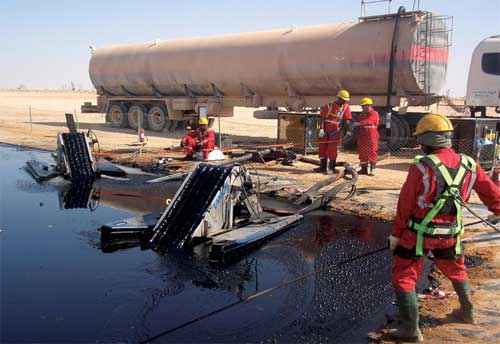Because of the possibility of spills or the fact that hazardous waste is generated during a specific process (e.g. rig decommissioning), hazardous waste collection and disposal are necessary. Certain industries, including the oil and gas industry, generate a lot of hazardous waste during their operations. All of this transformer liquid dumping must be safely and properly managed.
Companies that are responsible for hazardous waste from unexpected spills in industries need specialist companies available 24 hours a day, 365 days per year. They should be able and willing to handle the situation in a responsible and prompt manner.

The majority of hazardous waste must first be collected. It is best to collect hazardous waste on-site. Then, it can be stored temporarily in receiving vessels until transferred to specialist storage facilities.
These storage facilities are able to accept large amounts of waste and can also separate it if necessary. The oil industry can collect hazardous waste such as oily water, drilling fluids, and cuttings. Oily water can be divided into oil and water. These two components are treated differently. It is important to properly treat oil-contaminated soil and dispose of any waste.
Companies that are contracted to handle the waste must have licensed facilities to transfer and treat it. The company must also have the right trained and experienced staff to perform any cleaning, disposal, or collection operation.
If a company produces less hazardous or contaminated material than they have stated, they must still be treated in the proper manner. They don't have to register with the Environment Agency. A consignment note is required for hazardous and contaminated waste collection and movement. It identifies the type and tracks the movement of the waste. This provides greater safety for all parties and the public.